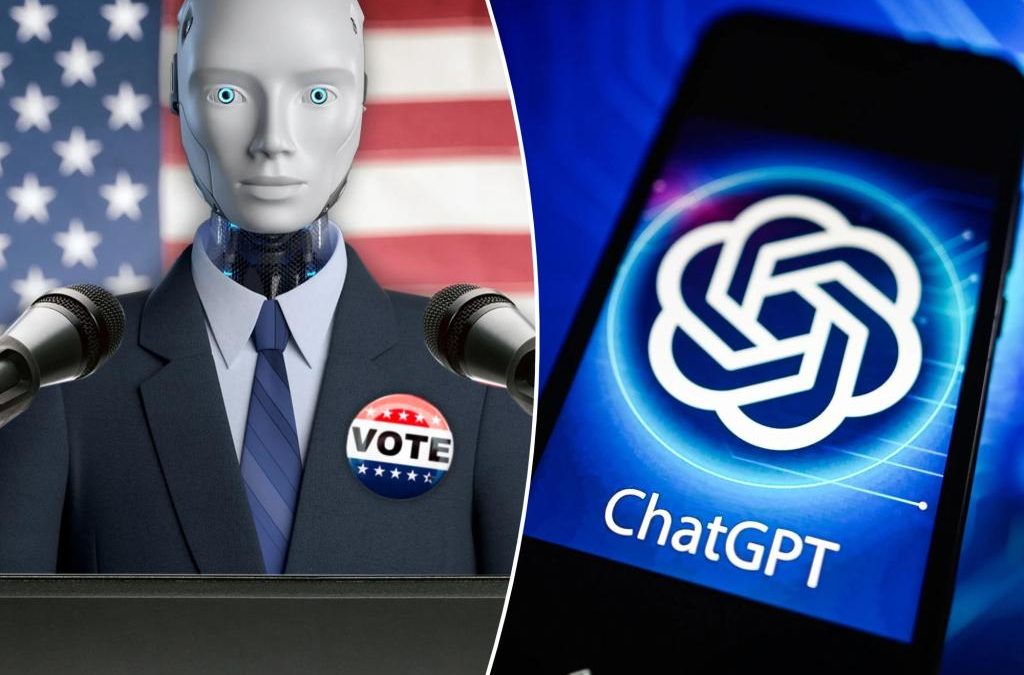ChatGPT might soon become ChatGOV.
A lawmaker in Porto Alegre, Brazil used the artificially intelligent program to draft a piece of legislation unanimously approved by fellow politicians last month.
The computer-drafted bill was presented by Councilman Ramiro Rosário, 37, who says there’s still a stigma surrounding the inclusion of AI tools in the political process.
“They [government colleagues] would never have signed it if they’d known,” Rosário told the Wall Street Journal of the “purposefully boring” bill, which was designed to stop a local water company from charging residents for new meters.
Usually, it would take days and numerous members of Rosário’s staff to draft such a laborious bill — but ChatGPT fired out the lengthy text in just 15 seconds.
Rosário believes the legislation is the first in the world to be fully crafted by the AI program.
He also predicts ChatGPT could spell doomsday for his public relations team. Case in point: the program drafted a press release for its law as well.
“There must be 20 or 30 [employees] — they probably won’t be needed in the future,” the politician proclaimed. “To be honest, they’re already no longer needed.”
ChatGPT even came up with a legal clause for the bill that tech-loving Rosário says he wouldn’t have thought up on his own.
But other politicians aren’t as enamored with AI.
Upon learning that the bill was crafted by ChatGPT, some of Rosário”s government colleagues government became scornful.
Councilman João Bosco Vaz is now calling to have the law revoked.
“It’s a dangerous precedent!” the detractor declared. It’s just not something you do! He should have talked to the other councilors first.”
But Rosário in undeterred.
“They didn’t get it,” he bluntly told The Journal.
‘A dangerous precedent’
The Brazillian lawmaker isn’t the first to put ChatGPT to professional use.
A judge in Britain made headlines in September after admittedly using the “jolly useful” cyber tool to summarize a law.
In March, a judge in India even recruited ChatGPT to decide the fate of a criminal trial.
However, professionals could be overlooking the potential problems of AI tools.
In a recent departmental AI guidance manual, the New York City government described such technology as potentially having a “misuse, flawed design” along with “serious bias” and “active harms.”
Experts in the field have great concerns over the “fundamental flaw” of a programmed-in, left-leaning bias that ChatGPT uses to produce its answers. Researchers previously found it also was more tolerant of hate speech towards Republicans and men.
The tool also has previously acted to censor free press. Last February, the program refused to write an article in the style of the New York Post on the grounds of it being “inflammatory.”
ChatGPT did not hold the same standard when asked to do the same in the style of CNN.
Political programming aside, ChatGPT also faces long-term technical issues that would become extremely apparent in legislative matters.
The language learning model (LLM) struggles greatly with producing citations and often creates bogus ones, which, when referencing previous legal examples can — and has already — caused problems in court.
In June, a New York City lawyer profusely apologized to a federal judge after ChatGPT “duped” him by creating phony precedents for a case. This is due to the program only basing its responses on dated training data as it does not have a live feed of updated information flowing into it.
In other words, ChatGPT is not connected to the Internet in that way.
It’s also worth noting that a prominent AI program also believed that the U.S. Constitution was drafted by a computer, just as Rosário’s controversial bill in Brazil was.
Source




